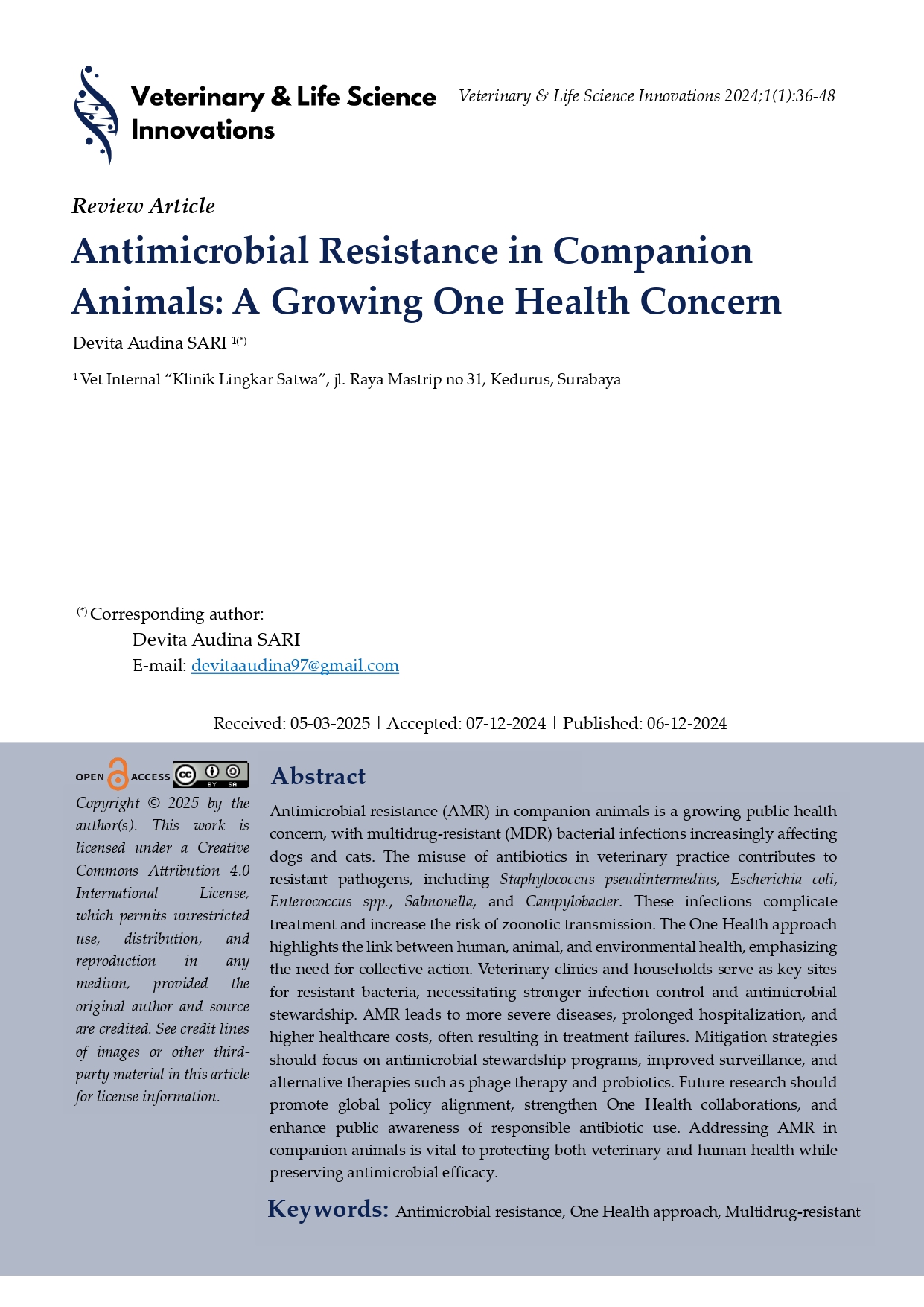Antimicrobial Resistance in Companion Animals: A Growing One Health Concern
Keywords:
Antimicrobial resistance, One Health approach, Multidrug-resistantAbstract
Antimicrobial resistance (AMR) in companion animals is a growing public health concern, with multidrug-resistant (MDR) bacterial infections increasingly affecting dogs and cats. The misuse of antibiotics in veterinary practice contributes to resistant pathogens, including Staphylococcus pseudintermedius, Escherichia coli, Enterococcus spp., Salmonella, and Campylobacter. These infections complicate treatment and increase the risk of zoonotic transmission. The One Health approach highlights the link between human, animal, and environmental health, emphasizing the need for collective action. Veterinary clinics and households serve as key sites for resistant bacteria, necessitating stronger infection control and antimicrobial stewardship. AMR leads to more severe diseases, prolonged hospitalization, and higher healthcare costs, often resulting in treatment failures. Mitigation strategies should focus on antimicrobial stewardship programs, improved surveillance, and alternative therapies such as phage therapy and probiotics. Future research should promote global policy alignment, strengthen One Health collaborations, and enhance public awareness of responsible antibiotic use. Addressing AMR in companion animals is vital to protecting both veterinary and human health while preserving antimicrobial efficacy.

Downloads
Published
Issue
Section
License
Copyright (c) 2025 Veterinary & Life Science Innovations

This work is licensed under a Creative Commons Attribution-NonCommercial-ShareAlike 4.0 International License.
Veterinary & Life Science Innovations provides open access to ensure that the information and findings in the articles are beneficial to all. All content of this journal article can be accessed and downloaded freely, at no cost, in accordance with the Creative Commons license applied.







